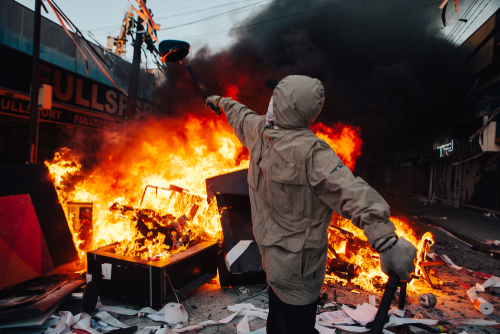In a deeply concerning development, the notorious Tren de Aragua (TdA) gang, a Venezuelan prison-originated criminal organization, has extended its reach into Texas, reportedly taking control of four apartment complexes in the state. The gang’s rapid spread in the U.S. is heightening alarm over the Biden administration's border policies, with Texas officials sounding the alarm on growing TdA activity across the state.
The Tren de Aragua gang, formed in a Venezuelan prison in the early 2010s, has gained infamy for its involvement in human trafficking, drug smuggling, and extortion, primarily targeting vulnerable migrant populations. It first gained prominence in Venezuela, extorting local businesses and trafficking migrants to neighboring countries. Over time, it has expanded into several U.S. states, including Texas, Colorado, and New York.
Venezuelan prison gang Tren de Aragua is now taking over apartment buildings in Colorado. The gang has been imported through places like Eagle Pass, Texas during Kamala's stint as "Border Czar."
Aurora, CO, voted for Biden at a whopping 61%-36% in 2020. pic.twitter.com/EbGltkEG2T
— LibertyManiacs (@libertymaniacs) August 29, 2024
The situation in Texas, particularly in cities like San Antonio, highlights the gang's expanding influence. Tren de Aragua members reportedly seized control of the Palatia Apartments, a large complex with 678 units, where they have been involved in illegal rent collection from undocumented migrants, drug trafficking, and other forms of criminal activity. Residents of the complex have reported frequent violent incidents, including a murder, further fueling the concerns of locals about the deteriorating security situation.
The takeover of these apartment complexes is part of a broader trend of criminal enterprises exploiting weaknesses in the U.S. immigration system. Texas officials, including Governor Greg Abbott, have condemned the federal government for failing to adequately address the growing threat of transnational gangs like Tren de Aragua. Abbott recently declared the gang a "foreign terrorist organization," which will allow for harsher penalties against gang members and give law enforcement greater authority to combat their activities.
Why don’t we American citizens just start taking over apartment buildings???
Listen to #thisweekinconspiracy #podcasthttps://t.co/EDIgGMyx3f— This Week in Conspiracy (@ThisWeekinConsp) October 17, 2024
Texas authorities, led by the Department of Public Safety (DPS), are working with federal agencies to disrupt the gang's operations. Recent arrests have targeted high-level TdA members, including a raid in San Antonio that resulted in the detention of multiple gang members. Despite these efforts, the gang’s influence continues to grow, fueled by a steady flow of migrants crossing the border. Law enforcement reports suggest that over 3,000 Venezuelans involved in criminal activity have been arrested in Texas since 2021.
Critics of the Biden administration's immigration policies argue that the lax approach has contributed to the rise of these criminal organizations. Under current policies, Venezuelan migrants have been granted temporary protected status, allowing them to live and work in the U.S. without facing deportation for two years. This, Abbott claims, has created a haven for gangs like Tren de Aragua to exploit vulnerable migrants and expand their criminal enterprises.
The impact of the gang’s presence in Texas extends beyond the apartment takeovers. Residents in affected areas report living in constant fear, as the gang engages in violent crime and uses intimidation to maintain control over the properties it has seized. Some officials have compared the situation to the lawlessness seen in Latin American countries where the gang originated, further stoking fears about the consequences of unchecked illegal immigration.
The complexity of the situation is underscored by the ongoing political debate over border security. Governor Abbott has repeatedly clashed with the Biden administration over how to handle the crisis, and has called for more resources to be allocated to border enforcement and gang suppression. At the same time, local law enforcement agencies are working to devise strategies to reclaim control of these neighborhoods from entrenched criminal elements.

